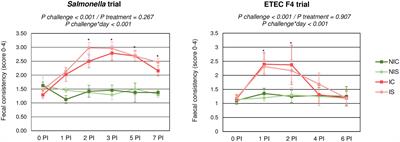EDITORIAL
Published on 09 Aug 2022
Editorial: Optimizing probiotic applications in agriculture: Exploring the role of growth and health promoter's microorganisms in plants and livestock animals
doi 10.3389/fmicb.2022.993075
- 1,642 views
- 1 citation
8,272
Total downloads
38k
Total views and downloads
Select the journal/section where you want your idea to be submitted:
EDITORIAL
Published on 09 Aug 2022
ORIGINAL RESEARCH
Published on 08 Mar 2022

REVIEW
Published on 07 Feb 2022

ORIGINAL RESEARCH
Published on 05 Jan 2022

ORIGINAL RESEARCH
Published on 12 Nov 2021

ORIGINAL RESEARCH
Published on 16 Jul 2021

ORIGINAL RESEARCH
Published on 15 Jun 2021

